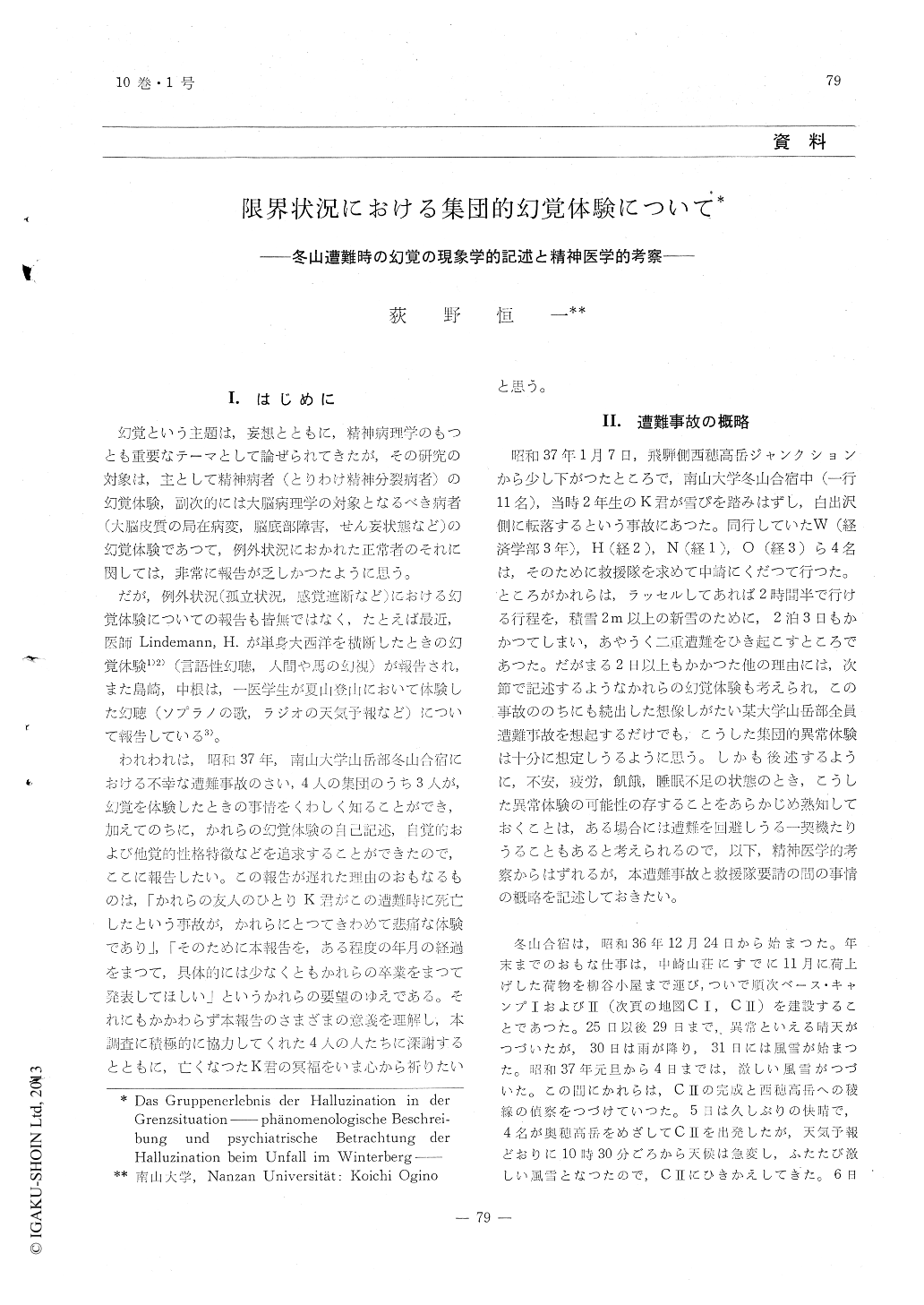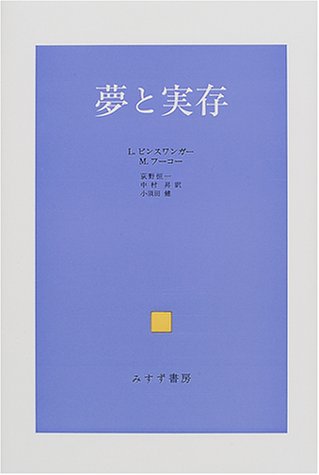I.はじめに 幻覚という主題は,妄想とともに,精神病理学のもつとも重要なテーマとして論ぜられてきたが,その研究の対象は,主として精神病者(とりわけ精神分裂病者)の幻覚体験,副次的には大脳病理学の対象となるべき病者(大脳皮質の局在病変,脳底部障害,せん妄状態など)の幻覚体験であつて,例外状況におかれた正常者のそれに関しては,非常に報告が乏しかつたように思う。 だが,例外状況(孤立状況,感覚遮断など)における幻覚体験についての報告も皆無ではなく,たとえば最近,医師Lindemann, H. が単身大西洋を横断したときの幻覚体験1)2)(言語性幻聴,人間や馬の幻視)が報告され,また島崎,中根は,一医学生が夏山登山において体験した幻聴(ソプラノの歌,ラジオの天気予報など)について報告している3)。
1 0 0 0 夢と実存
- 著者
- ビンスワンガー フーコー著 荻野恒一 中村昇 小須田健共訳
- 出版者
- みすず書房
- 巻号頁・発行日
- 2001
1 0 0 0 OA シンポジウムIII: 人間性について
- 著者
- 対馬 忠 村山 正治 河合 隼雄 鐘 幹八郎 玉城 政光 水島 恵一 荻野 恒一
- 出版者
- 一般社団法人 日本教育心理学会
- 雑誌
- 教育心理学年報 (ISSN:04529650)
- 巻号頁・発行日
- vol.19, pp.87-93,185, 1980-03-30 (Released:2012-12-11)
The term “human nature” should, according to the symposium organizer, imply both its positive side or humanitarian love, and negative side or aggression-destructive tendency, cruelty, and jealousy, etc. By recognizing human nature as such, we shall be able to have deeper insight and better understanding both on ourselves and other people.In the twentieth century, after the two World Wars, human nature has been discussed from the viewpoint of “war and peace”,but it should be discussed now in relation to the great development of technology as well as the social systems and its structures.The first speaker, M. Tatara mentioned from the point of view of psychoanalysis the malformation and recovery of human nature. He mainly stressed on Erikson's point of view, but pointed out the fact that the recovery also depended on social situations to some extents.The second speaker M. Murayama, a Rogerian introduced the characteristics of C. Rogers' point of view on human nature. The third speaker H. Kawai, a Jungian, grasped human nature with two opposite poles-logos and pathos-and at present he thinks that human nature should be broadly considered in relation to the highly developed technology. He believes that to understand human nature as a whole it should be based not only on organized logical approach, but also on phenomenological one faithful to facts.The fourth speaker, a Skinnerian, M. Tamaki introduced B. F. Skinner's theory on human nature. As Skinner's opinion was thorough going and stimulating though simple in a way, his talk aroused discussions in a heated atmosphere.The fifth speaker, K. Mizushima connected the above four speakers' talks rather systematically in relation to his own 200 clinical caces.The invited discussant, K. Ogino, a psychiatrist, put much emphasis on the importance of the unreasonable quality of human nature, and he was against Skinner.A question was asked by the audience on the relationship between dependence and Amae, and M. Tatara and H. Kawai were requested to answer.They answered that dependence and Amae had not exactly the same meaning, and in relation to this point, the difference between the concepts of ego in the West and Japan should be considered. Both felt further medication was necessary before well-matured answer could be given.

